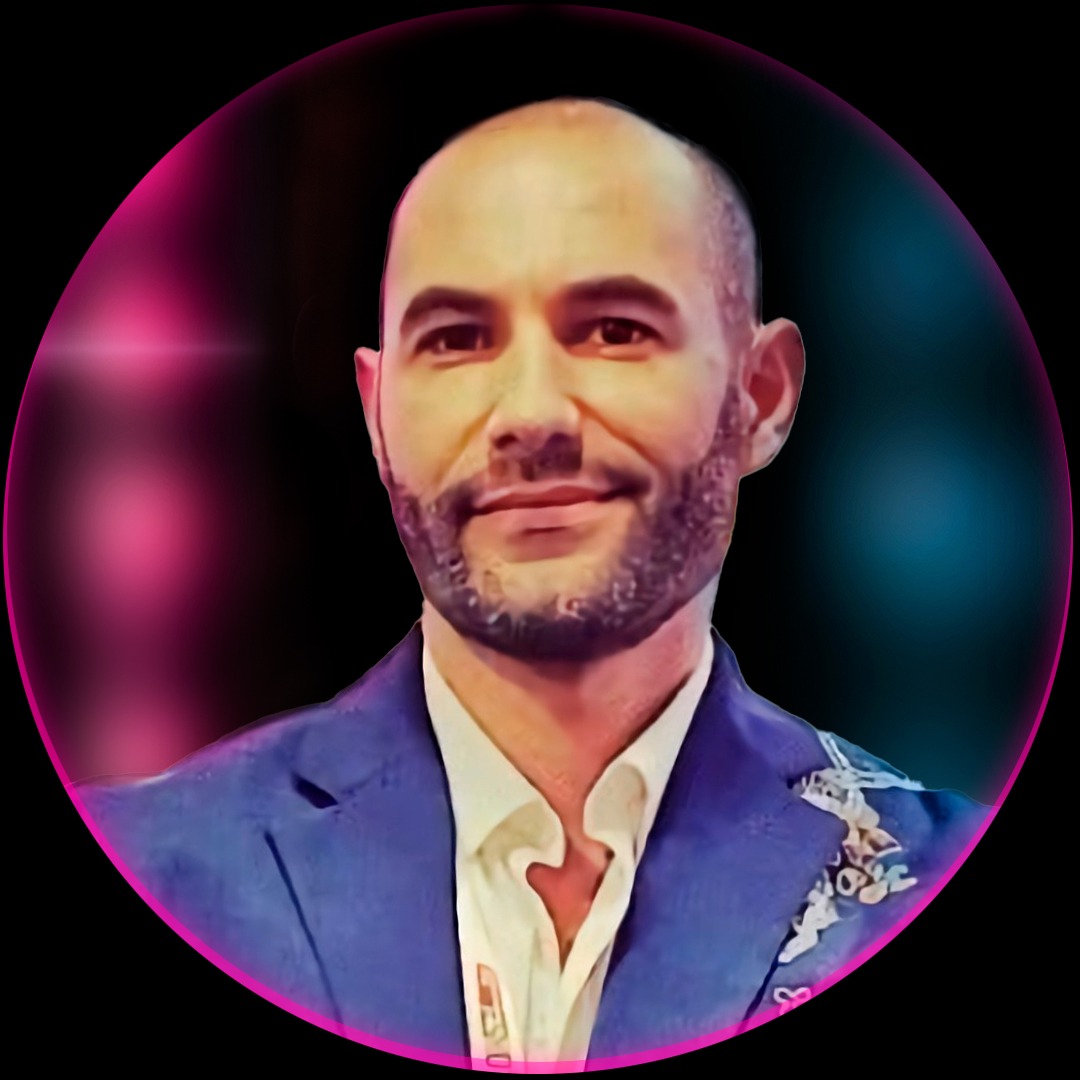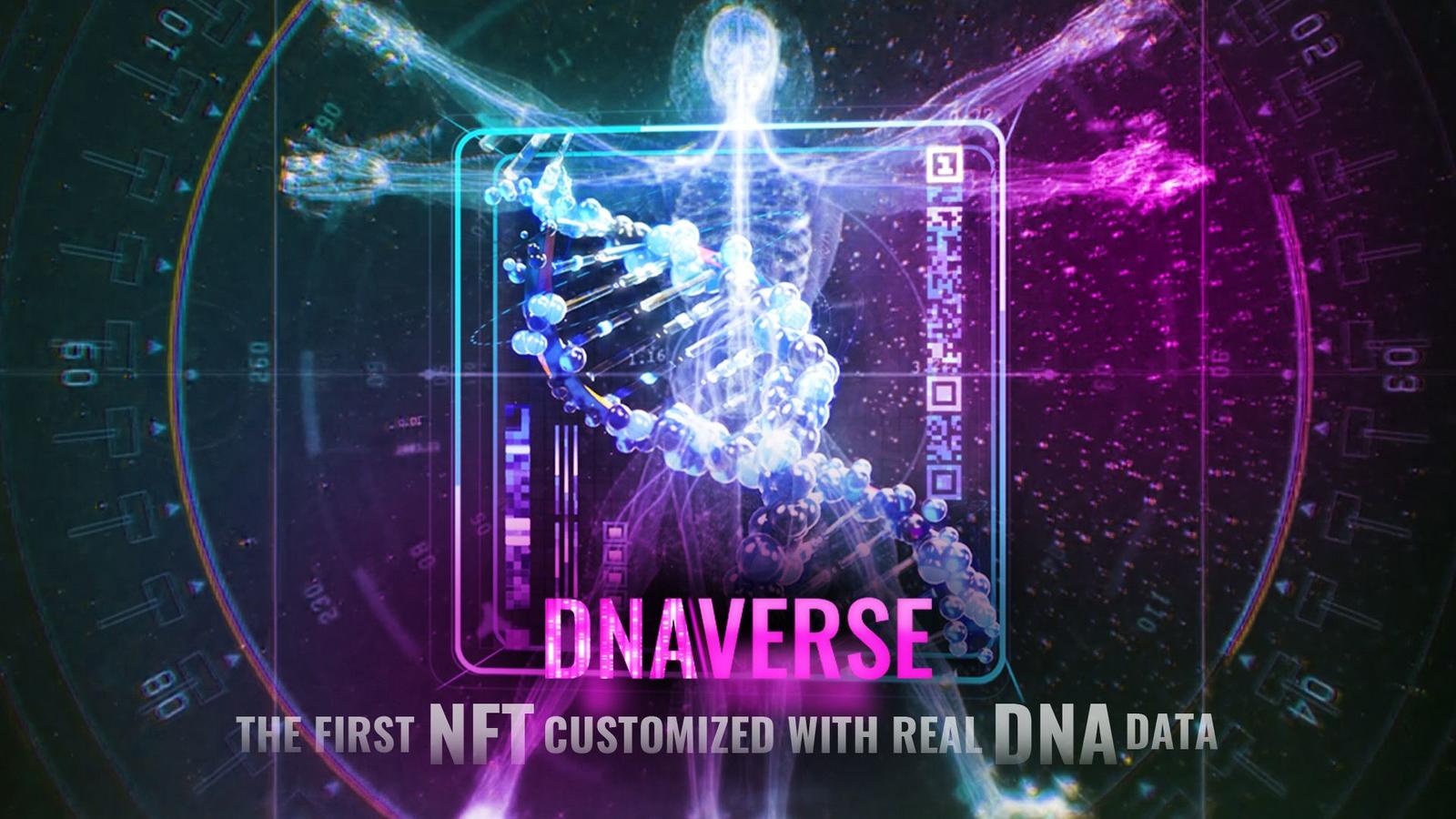It’s Metaverse May at TechRound! We’re diving into all things metaverse related, from new emerging metaverse startups to the latest metaverse predictions. Here, we chat to Javier M. Floren, CEO & Co-Founder of DNAverse, the world’s first art NFT collection customised with real DNA, built upon a utility business model that pioneers the biometaverse concept.

Can you please tell us a little bit about DNAverse?
“It’s my pleasure, thanks for having me. DNAverse is the world’s first art NFT collection customised with real DNA, built upon a utility business model that pioneers the biometaverse concept. We are the first project in the world to artistically interpret users’ real genetics into customised NFT artwork, and we are poised to bring visual scientific authenticity to the metaverse.
DNAverse was launched by 3DforScience, one of the world’s most influential and internationally renowned scientific visualisation studios. Our team comprises a range of seasoned NFT specialists, scientists, designers and 3D animators.”
Sounds complex! How does it work exactly?
“Yes, it’s certainly a novel concept! To help readers better understand what we do, I’d like to hone in on 3 core pillars of our platform: Cryptoproteins, DNA Passes, and DNArts – which are all intrinsically linked.
Just like proteins are among the most important molecules in life, we can think of cryptoproteins as the genesis drop of human life in the metaverse. Cryptoproteins are 3D assets with complete scientific accuracy, based on the 200 essential proteins for life, with the exact same body structure as in reality. They are also fully endorsed by the Protein Data Bank – an internationally recognised scientific organisation.
Following our cryptoprotein genesis drop, we will have the main drop of 3,000 DNA Passes, which are essentially a redeemable ticket or minting pass that grant holders the right to receive an individually customised DNA-based NFT, which we call DNArts. Each NFT is one-to-one handcrafted and includes a genetic study and a fully personalised artistic interpretation of collectors’ own DNA.”
More from Interviews
- Meet Roman Eloshvili, Founder of ComplyControl
- Inside Mobile Payments with Bojoko’s Ville Saari
- Meet Steve Haskew, Group Director of Sustainability and Growth At Circular Computing
- A Chat with Hakob Astabatsyan, CEO and Co-Founder of Synthflow AI
- Meet Ernesto Suarez, CEO at Travel Insurance Provider: Gigasure
- Under Pressure and On the Clock: Gurhan Kiziloz’s Nexus International to Hit $1.45B Revenue in 2025
- Daisy Ip of InvestHK: Why Hong Kong Continues To Grow In Popularity Amongst UK Fintech Startups
- A Chat with AJ Balance, Chief Product Officer at Grindr
What are your thoughts on today’s NFT space?
“I think it’s fair to say that every platform wants to be the frontrunner in their space, while capitalising on evolving market trends. Moreso, projects across the industry spectrum are striving to create a genuine ‘world’s first’ moment. To achieve this requires an innate understanding of the sector, and an ability to quickly formalise a value proposition that addresses a pronounced gap in the market.
The NFT space has experienced explosive growth in the last year or so, spurred on by the pursuits of globally recognised artists and celebrities who are keen to strengthen their earning power with bespoke digital representations of their content.
However, not every NFT project will make it. The cream always rises to the top, no matter the industry, and projects with the most dynamic utilities will ascend and endure in the long term.”
What opportunities and challenges do you see with the development of the metaverse?
“Right now, we are truly in the metaverse era, and it’s expanding rapidly. The momentum shows no signs of abating, particularly as globally recognised brands continue to signal their intentions to debut in the metaverse. Today’s physical world is really a digital hybrid, with smartphones, smart watches and so on becoming digital extensions of one’s self. Now we want to imbue human characteristics in the digital metaverse.
The evolution of humanity is very much tech driven. As a species, we are constantly breaking new ground in the arena of technological innovation, and the possibilities for further human/digital integration is boundless. Elon Musk has long championed the idea of Neurolink chips, this is absolutely within the realm of possibility in the not so distant future. Looking ahead, it’ll be difficult to know who is who in the metaverse, given the proliferation of AI and bots. At DNAverse, we want to bring human verification to the metaverse.
In my opinion, the metaverse represents an opportunity to re-create the fabric of human existence. One of the most pressing issues in our society today is that of user privacy, which is seemingly being undercut by nefarious actors at every conceivable turn. All DNAverse users’ genetic information is securely handled by a licensed DNA laboratory, and remains fully anonymous. As an exclusive benefit for DNAverse collectors, the codification of the genetic information on the blockchain will be offered optionally.
The benefits of introducing an individual’s genetics into an NFT art piece are numerous, from verifying humans against Artificial Intelligence, personalising digital assets with their true essence, or transferring our consciousness into web3. These are lofty, but achievable goals we have set for ourselves.”
Can you tell us about DNAverse’s upcoming pipeline of activity?
“While we have enjoyed an exceptional phase of growth over the last number of months, we really are just getting started. In the near term, we will be announcing strategic partnerships with some of the world’s leading global blockchain ecosystems, as part of our ongoing multi-chain expansion.
In fact, just this week we announced a strategic partnership with Polygon Studios, an organisation onboarding developers, brands, artists, and content creators to Web3 through investment, marketing, developer and community support. We’ll be collaborating with them to spearhead the development of the BIOmetaverse on the Polygon blockchain. This represents a firm seal of approval for the unique DNAverse offering, and will help us extend our value proposition to new swathes of crypto and NFT enthusiasts.
We’re also gearing up for the Genesis drop, the Cryptoproteins, and the main drop of DNA Passes. There will only be 200 from the Genesis and 3,000 centralised and price-controlled DNA Passes minted, and this will be the only centralised drop of DNA NFTs. We also look forward to collaborating with major blockchain platforms regarding the development of the biometaverse, watch this space.”



